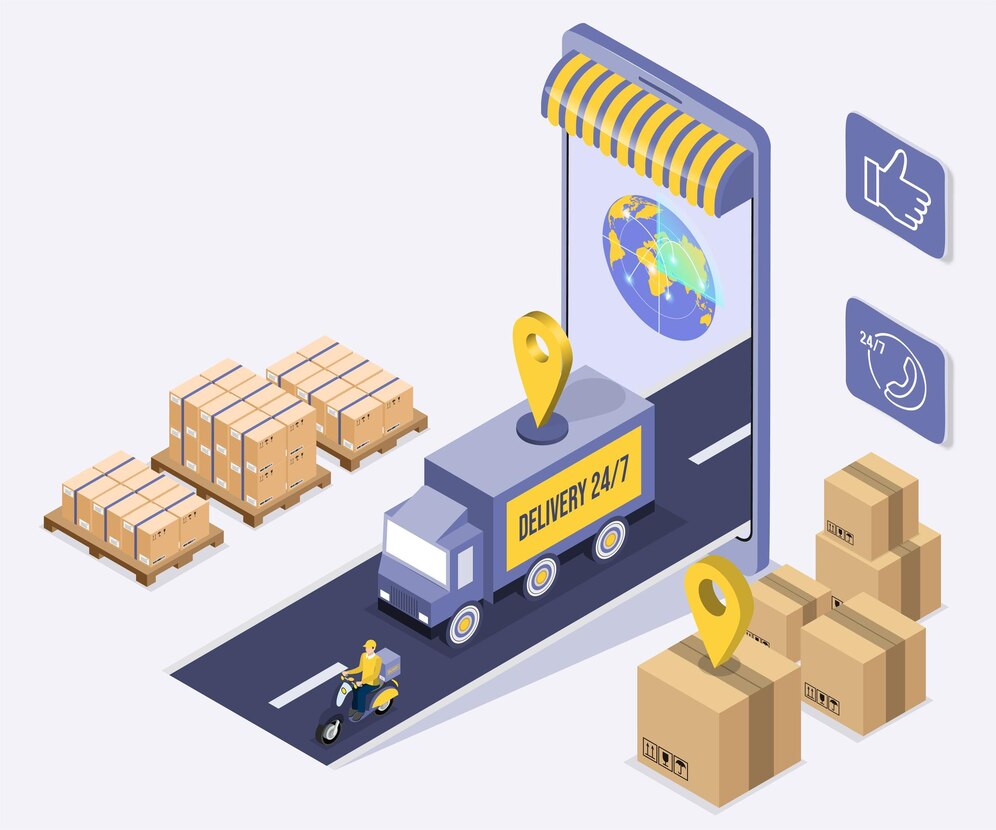Reliability is crucial in the fast-paced field of logistics. Every mile matters, every minute counts, and on-time deliveries are required. This is where Uber for Logistics enters the picture, revolutionising the handling and shipping of goods. This essay will examine the ways in which this creative strategy is transforming the products sector and the way commodities are moved.
The Traditional Logistics Landscape
Traditionally, logistics operations have been complex and often fragmented. Multiple intermediaries, paperwork, and communication gaps could lead to delays and inefficiencies. Shippers would have to navigate through a maze of carriers, brokers, and warehouses to get their goods from point A to point B. This outdated system was ripe for disruption, and that's precisely where Uber for logistics saw an opportunity.
What is Uber for Logistics?
Think of Uber for logistics as a digital platform that connects shippers directly with carriers. It eliminates the need for middlemen and streamlines the entire process from booking to delivery. Just like ordering a ride through the Uber app, shippers can now request a truck with a few taps on their smartphone. This on-demand model ensures faster response times, greater transparency, and ultimately, lower costs for all parties involved.
The Benefits of Uber for Logistics
One of the key advantages of Uber for logistics is its flexibility. Shippers no longer have to commit to long-term contracts or minimum shipment volumes. Instead, they can access capacity on an as-needed basis, scaling up or down depending on demand. This dynamic approach not only reduces overhead costs but also minimizes wasted resources, making the entire supply chain more agile and responsive.
Empowering Truckers
For truckers, Uber for logistics app offers new opportunities to maximize their earnings. By leveraging the platform, they can access a steady stream of freight requests and optimize their routes for maximum efficiency. This means fewer empty miles and more profitable runs. Additionally, the rating system ensures that only reliable and trustworthy drivers are rewarded with repeat business, incentivizing superior service and professionalism.
Enhancing Visibility and Transparency
Another significant benefit of Uber for logistics is enhanced visibility and transparency. Shippers can track their shipments in real-time, knowing exactly where their goods are at any given moment. This level of visibility not only reduces the risk of lost or damaged cargo but also allows for better planning and decision-making. With access to accurate data and insights, businesses can optimize their supply chain for greater efficiency and cost savings.
The Role of Technology
At the heart of Uber for Truckers is technology. From sophisticated algorithms to advanced GPS tracking, every aspect of the platform is designed to optimize performance and deliver value. Machine learning algorithms analyze historical data to predict demand patterns and optimize routing, while IoT devices provide real-time visibility into inventory levels and delivery status. The result is a seamless and efficient logistics experience that meets the demands of today's digital economy.
Also Read: Why is colour important in marketing?
Overcoming Challenges
Of course, the transition to Uber for logistics is not without its challenges. Resistance from traditional players, regulatory hurdles, and concerns over data security are just a few of the obstacles that must be overcome. However, with the proven success of similar models in other industries, the momentum behind Uber for logistics is undeniable. As more businesses embrace the benefits of digital transformation, the industry as a whole stands to benefit from increased efficiency and competitiveness.
Looking to the Future
As we look to the future, the potential of Uber for logistics is boundless. From autonomous vehicles to drone delivery, emerging technologies promise to further revolutionize the way goods are transported. By embracing innovation and leveraging digital platforms, businesses can stay ahead of the curve and unlock new opportunities for growth and success. Whether it's reducing costs, improving service quality, or minimizing environmental impact, Uber for logistics is paving the way for a brighter and more efficient future.
The Future of Freight Transportation
As technology continues to evolve and consumer expectations evolve, the future of freight transportation looks brighter than ever. The rise of Uber for the cargo app is just the beginning of a broader transformation that promises to reshape the entire logistics landscape.
With continued innovation and adoption of advanced technologies such as artificial intelligence, blockchain, and autonomous vehicles, the possibilities for optimizing freight transportation are virtually limitless. By embracing these changes and harnessing the power of on-demand logistics, businesses can stay ahead of the curve and thrive in an increasingly competitive market.
Navigating the Road Ahead
In conclusion, the rise of Uber for logistics marks a significant milestone in the evolution of the freight industry. By leveraging technology to provide on-demand solutions, streamline operations, and foster greater collaboration between shippers and carriers, these platforms are revolutionizing the way goods are transported around the globe.
As businesses embrace the opportunities presented by this transformative model, they can look forward to greater efficiency, reliability, and cost-effectiveness in their logistics operations. With the road ahead paved with innovation and possibility, the future of freight transportation has never looked brighter.
Conclusion
The emergence of Uber for Logistics signifies a pivotal moment in the evolution of freight management, ushering in an era defined by efficiency, transparency, and collaboration. Through its innovative use of technology, the platform has revolutionized traditional logistics processes, empowering companies to optimize their operations, reduce costs, and enhance customer satisfaction.
With its user-friendly interface, real-time tracking capabilities, and dynamic pricing model, Uber for Logistics has become a driving force in reshaping the industry landscape. As businesses continue to embrace this transformative solution and adapt to the changing demands of the market, the future of freight management appears brighter and more promising than ever before.





Comments